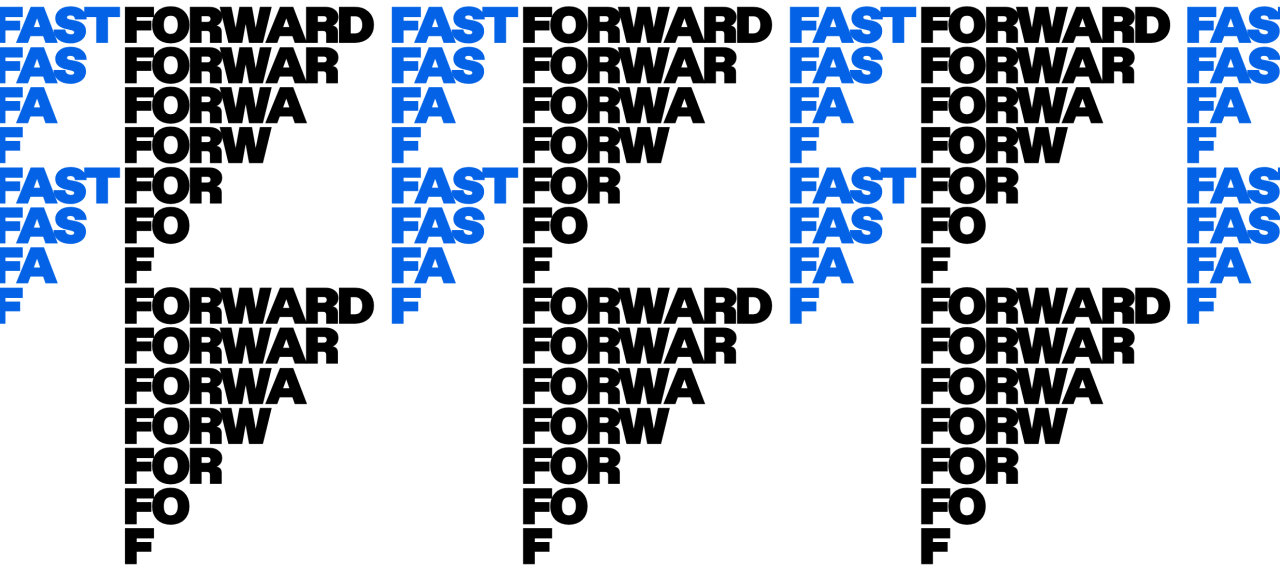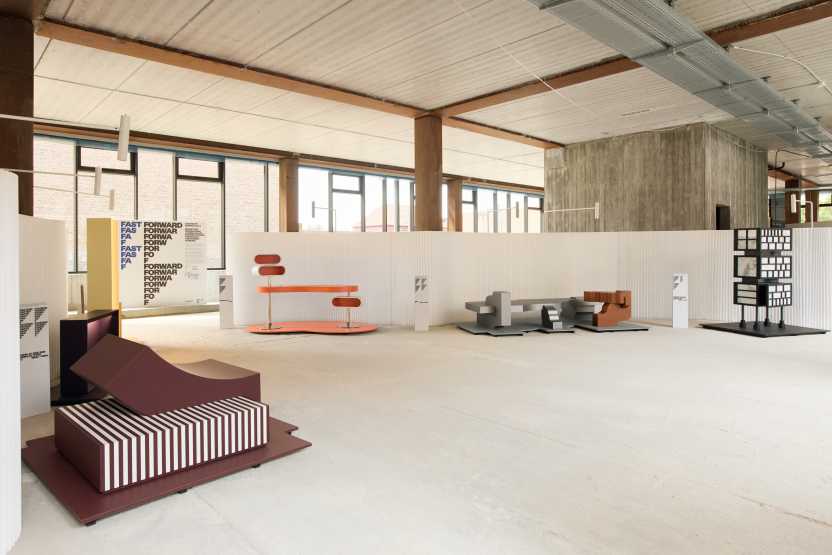present FAST / FORWARD

3daysofdesign: FENIX® and Formica®
present FAST / FORWARD
From June 18 to 20 at 3daysofdesign in Copenhagen, FENIX® and Formica® join forces and present FAST / FORWARD project.
The exhibition, curated by Federica Sala, enhances the synergy between the two brands staging a narrative that looks to the future while maintaining a connection with the past.
“FAST / FORWARD proposes a journey through time, from the past to the present and vice versa, in a short circuit that reflects on the relationship between surfaces, colours, patterns and design styles thanks to the work of six international design studios. Each of them was asked to reinterpret, under the sign of Formica® and FENIX®, a decade or a twenty-year period from the 1920s to 2000s,” says Federica Sala.

The designers—Federica Biasi, Laurids Gallée, Panter&Tourron, Thabisa Mjo, Tino Seubert and Uchronia— explore the potential of these materials in contemporary design by combining history with innovation.
Over a set up created by MUSA team and a visual design signed by Parco Studio, visitors are welcome to this time-travel experience. The research period goes from the 1920s—the decade following the invention of Formica® high-pressure laminates that started a revolution in the world of living spaces—to 2010, years in which FENIX® entered the world of surfaces with its innovative materials, signalling a new important turning point.
The selection of designers, ranging from Northern Europe to South Africa, highlights the widespread presence of the two brands. The choice embraces not only names linked to industrial design but also to craftsmanship and decoration, exploring languages of different decades through diverse creative approaches.
Come to explore FAST / FORWARD exhibition at 3daysofdesign: Kuglegården Danneskiold-Samsøes Allé 19—21, 1436 Copenhagen
01000010 00110010 01000110 Back To The Future by Thabisa Mjo
01000010 00110010 01000110 — Back to the Future by South African designer Thabisa Mjo is a piece that embraces the design heritage of the 1920s and 1930s and the Art Deco aesthetics by using FENIX® materials and Formica® laminates. It is a cabinet that modernises futurist influences and the concept of progress.
Bow by Laurids Gallée
Austrian designer Laurids Gallée, who is based in Rotterdam, presents Bow: a bench and a coffee table inspired by the 1940s and 1950s aesthetics. The fluid lines and material choices reflect on the design of those decades. Both pieces originate from the shaping of a simple form that is modified in size, duplicated, and overlapped across different axes.
Sunrise Desk by Uchronia
Paris-based studio Uchronia presents Sunrise, a desk characterised by soft lines and a bold, ironic aesthetics. This project evokes the spirit of cultural experimentation and innovation of the 1960s, reinterpreted through fluid curves, solid volumes, and a visually intense composition.
Nude Chair by Tino Seubert
Four planes intersect at different angles to form Nude Chair, a linear and sophisticated seat designed by Tino Seubert, a German designer based in London.
The project draws inspiration from the radical and sensual aesthetics of the 1970s and the emphasis on the body, freed from conventions and rules. It was a time when form became both a political and personal expression, and design explored fluid volumes, tactile surfaces, and diverse proportions.
Display (1x6) And Display (7x10) by Panter&Tourron
Display (1x6) and Display (7x10) are two sculptural lamps designed by the Swiss studio Panter&Tourron, founded by Stefano Panterotto and Alexis Tourron. With a self-imposed grid, the two luminous sculptures explore the relationship between light, matter and form through linear geometric volumes.
Reinterpreting the language of the 1980s and 1990s—a time in which design experimentation was translated into ergonomic lines and geometric volumes. With this project, the designer duo goes beyond mere functionality to focus on formal research.
Fred by Federica Biasi
Created by Italian designer Federica Biasi, Fred is a monolithic chaise longue that evokes the concept of rest as a mental space, not just a physical one.
The project draws inspiration from the aesthetics of the 2000s and 2010s, as well as from early reflections on emotional and personal well-being in the contemporary world. Fred goes beyond its traditional ergonomic functionality, symbolically becoming an ally of self-care—a space for meditation and rest.
